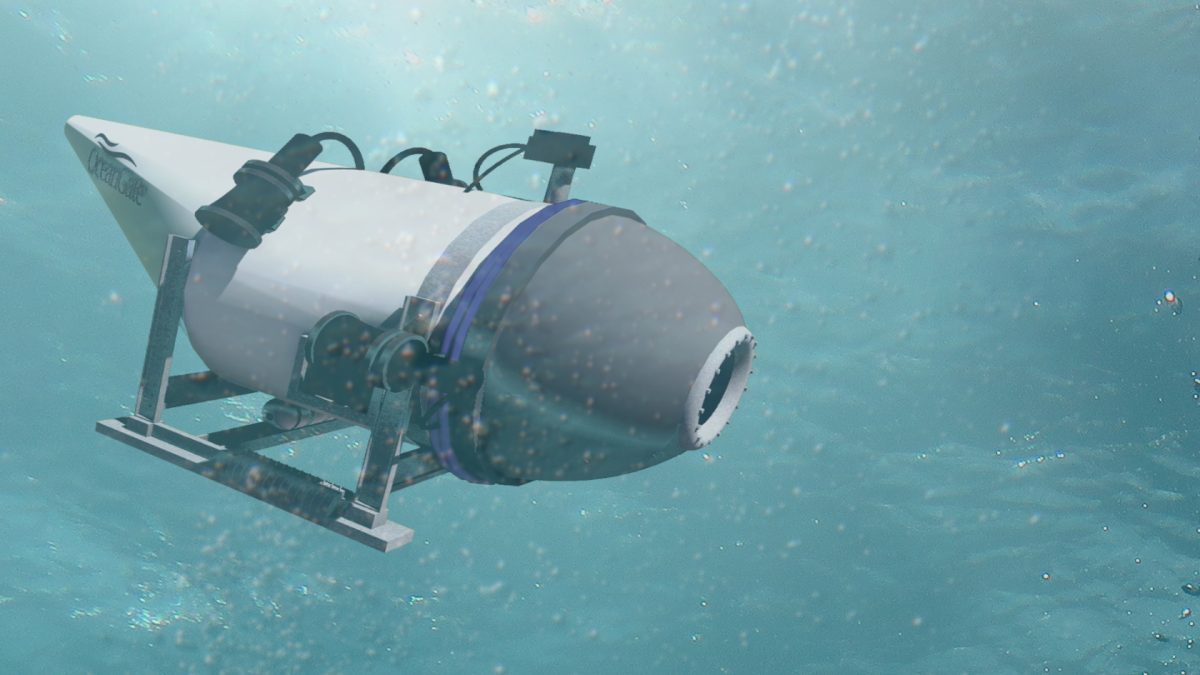Have we learned our lesson yet?

Photo via Wikipedia Commons.
Every shipwreck is a morality tale.
An engineering flaw. An overconfident captain, owner, or company. A bottomline valued over the safety of passengers and crew alike. Dismissal of the destructive power of nature. Hubris. Pride. Incompetence. And the most insidious of all — complacency.
On Sunday, June 18 at 11:47 a.m., the OceanGate Titan submersible lost contact with its mothership. Four days later, with both the Canadian and American Coast Guard conducting the search and the whole world watching, it was confirmed that the submersible suffered a ‘catastrophic implosion.’ There were no survivors.
On Wednesday, June 14, a migrant ship capsized with 750 people aboard. 104 survived. As of June 23, 82 bodies were recovered. The rest are presumed dead. The survivors said that other than throwing them bottles of water, the Greek Coast Guard did nothing to help.
In the month since these events, it has been impossible to discuss one story without the other. Despite occurring four days earlier, the migrant story received a majority of its attention because of the Titan sub. The contrast between the two rescue efforts are simply too stark to ignore. Why had so many resources been dedicated to a submersible that most likely imploded when they first lost contact and so few for the 600 migrants who didn’t survive?
When the Titan submersible story first broke, it almost didn’t feel real. It felt like a science-fiction story with metaphors that were a little too on the nose. A tourism industry based on sending submarines down to see the wreck of the Titanic? And they lost the sub?
More details revealed themselves as the timer on the passengers’ remaining air ticked down. The submersible, not a submarine, wasn’t classed. It was controlled by an off-brand video game controller and its system ran on Bluetooth.
Stockton Rush, OceanGate’s CEO, was quoted as saying, “At some point, safety just is pure waste. I mean, if you just want to be safe, don’t get out of bed. Don’t get in your car. Don’t do anything.” He was tired of “industry players who try to use a safety argument to stop innovation.”
The submersible was made of carbon fibre rather than the industry standard of titanium. Titanium gradually strengthens under exposure to stress. However, carbon fibre is slowly broken down by pressure. It was built to accommodate as many passengers as possible. The tickets were $250 000 per person.
The Greek Coast Guard said that they threw the migrant boat a rope so the vessel could stabilize itself but that their assistance had been denied.
Tarek Aldroobi, who had three family members on board, said that their relatives saw the Greek authorities towing the vessel with ropes, but the rope was tied in the “wrong places” — which caused it to capsize.
A spokesperson for the Coast Guard told CNN, “When the boat capsized, we were not even next to the boat. How could we be towing it?”
To give you a picture of the situation in Greece, Seán Binder travelled to Greece six years ago to help migrants and refugees. He was arrested in 2018 on charges of espionage, forgery, trafficking, and being part of a criminal organization. In January 2023, the charges were dropped, though he and other volunteers still face felony charges.
Of course, to die by a ‘catastrophic implosion’ is horrific. But at risk of sounding callous, the passengers of the Titan knew what they were signing up for. Of course, they didn’t expect to die on that particular voyage. No one would.
The Merchant Shipping Act of 1894 required ships weighing 10 000 tons and above to carry at least 16 lifeboats. When the Titanic launched in 1911, she weighed 45 000 tons and had 20 lifeboats. It took the Titanic sinking for the Act to be updated.
It wasn’t active maliciousness that sank the Titanic, imploded the Titan sub, or capsized the migrant ship — it was the complacency of those in charge. And while there have been whistle blowers in each of these cases, ultimately they were dismissed until the worst case scenario inevitably occurred.
Because a shipwreck big enough hadn’t yet occurred to justify the updating of the Merchant Shipping Act.
Because the deadly consequences were ignored for the sake of fitting more paying passengers into a single submersible.
Because it was against the law.
OceanGate has since suspended all operations, both commercial and exploration. They’ve since shut down their website and all social media.
A possible 600 people died trying to find a better life. Five billionaires died trying to see the most scanned shipwreck in the world in person.
Every shipwreck is a morality tale.
Have we learned from it?







